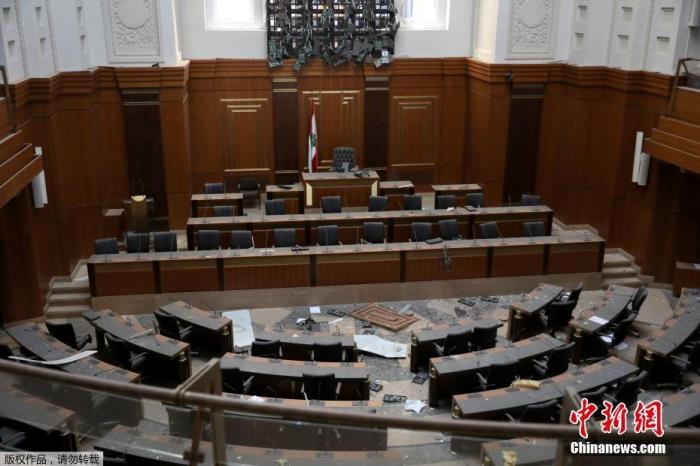Lebanese Prime Minister announces the collective resignation of the government, experts say Lebanon needs a "road map" for economic development
China News Agency, Beijing, August 11, Beirut News: On the evening of the 10th local time, Lebanese Prime Minister Diab announced the collective resignation of the government in response to the people's calls for change. Lebanese President Aoun has accepted his resignation.
Diab made a televised speech that night, saying that the current government has been trying to seek change since it took office, but encountered great resistance. He announced the collective resignation of the government, "fighting side by side with the people for change."
The Lebanese government held an emergency meeting on the 5th local time to declare Beirut as a disaster-stricken city and implement a two-week state of emergency in Beirut.
Diab said that Lebanon’s corruption system is difficult to eradicate. The explosion in the Beirut port area is one of the examples of corruption. "We are facing an'earthquake' sweeping across the country, and its humanitarian, social, economic and ethnic impacts are huge."
After his speech, Diab went to the presidential palace to hand in his resignation to President Aoun. Aoun accepted his resignation, but asked the government to continue to perform its duties until a new cabinet was formed.
On the evening of the 4th of this month, a violent explosion occurred in the port area of Beirut, the capital of Lebanon. So far, 158 people have been killed, more than 6,000 injured, and dozens of others are still missing. The explosion intensified public dissatisfaction with the government. Large-scale demonstrations took place in Beirut, and fierce conflicts between demonstrators and the police occurred.
On August 5, local time, debris was scattered on the floor of the Lebanese Parliament Hall in the central area of Beirut, the capital of Lebanon. On the evening of the 4th local time, a violent explosion occurred in the Beirut port area.
On the 8th, Diab called for early parliamentary elections to resolve various crises currently facing Lebanon. In the following two days, Lebanese Minister of Information Abdul Samad, Minister of Environment Qatar, Minister of Justice Najim, Minister of Finance Vazni and 7 Lebanese MPs resigned.
Maha Yahya, director of the Carnegie Center for Middle East Studies, analyzed that because the Beirut explosion greatly intensified public dissatisfaction with the government, holding elections in advance could no longer reassure the public. She believes that the best plan for Lebanon's next step is to appoint an independent prime minister to carry out economic reforms and "draw up an economic and financial rescue plan, while also preparing for next year's election." Yahya pointed out that the Lebanese people need a "road map", on the one hand to alleviate the consequences of the explosion, and more importantly, to point the way out of the country's poor economic situation. (Finish)

